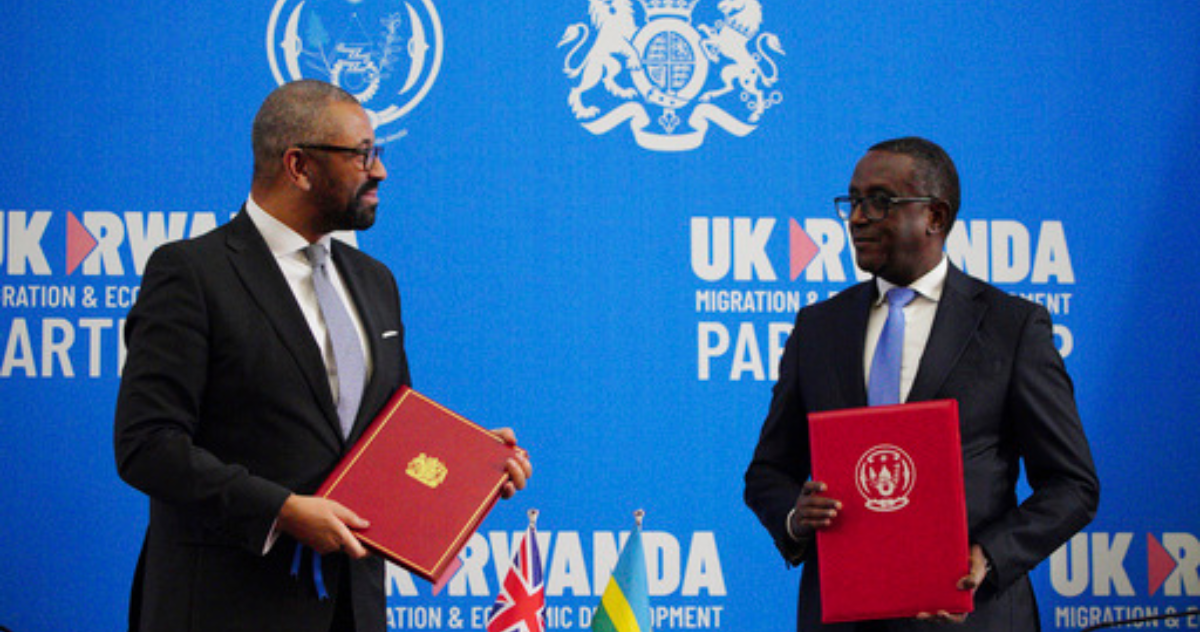UK (Parliament Politic Magazine) – The goal of UK Home Secretary James Cleverly’s Tuesday treaty signing with Rwanda is to get around a court ruling that has been blocking the government’s policy of sending asylum seekers to that African nation. The new UK-Rwanda treaty will try to allay the Supreme Court’s worries. It is a legal improvement over the two nations’ current memorandum of understanding.
Yvette Cooper Said
However, the shadow home secretary, Yvette Cooper, called the move “simply a gimmick.”
Last month, the Supreme Court issued a unanimous decision stating that individuals seeking asylum who were deported to the East African nation faced a genuine danger of having their claims improperly evaluated and being returned to their home countries.
Plan of United Kingdom Government
The UK government’s troubled plan to outsource asylum seekers is not revived by signing a treaty with Rwanda; instead, it is likely to spark new political and legal wrangling.
Possibly this week, Cleverly will present legislation in the House of Commons that he claims will allow parliament to formally declare Rwanda to be “safe.” It is anticipated that the claim will be contested in court.
Tory MP’s Reaction
There is also disagreement among Tory MPs over whether the controversial “notwithstanding” clause, which would exempt the UK from both domestic and international human rights obligations, should be incorporated into the new legislation regarding the Rwanda policy.
More than twenty Tory MPs warned Prime Minister Rishi Sunak last week that they would not back the immigration minister Robert Jenrick or the former home secretary Suella Braverman’s proposal. Cleverly would sign the treaty in Kigali, Rwanda, where he would meet with Vincent Biruta, the minister of foreign affairs, according to the Home Office.
It emphasized that other nations, such as Austria, Italy, Germany, and Denmark, were also investigating the idea of sending migrants to a “safe third country.”
According to Sunak, a historic “migration and economic development partnership” was signed by the UK and Rwanda last year. As a result, people who come to Britain in small boats will be sent to Rwanda. The majority of the £140 million that the UK has already given the Rwandan government for the program comes from development funding.
“This side of an election, there is no chance of anyone being put on a flight to Rwanda,” stated a cabinet minister.
Cooper stated that more home secretaries than asylum seekers were being sent to Rwanda by the government.
Home secretary reviews,
“They have already spent £140 million; more will be spent this year; they won’t tell us how much; more promised again next year,” the home secretary said. “This is the third home secretary in less than two years, off to Rwanda with another cheque book.”
“This failing scheme will only address a few hundred people when over a thousand have arrived in the last week because it isn’t targeting the criminal gangs that profit greatly from these crossings,” the speaker continued.
James Cleverly, Minister of State for Immigration Compliance, will speak about the UK’s ongoing challenges with regard to asylum seekers when he signs a new agreement with Rwanda. The government intends to revive its plans to establish an offshore center to handle asylum claims by taking this action. Recently, this proposal has sparked heated debate and discussions. The treaty will be signed later this week, and this comes as the UK government searches for new approaches to handle the increasing number of individuals approaching its borders in search of asylum.
The treaty will contain the terms and conditions that regulate the processing center’s operations. It is expected to include provisions about treating asylum seekers equitably, upholding international human rights standards, and cooperating with Rwanda to control migration flows, though specifics are still unknown. There will be representatives from both countries at the signing ceremony, which is regarded as a crucial stage in finalizing the agreement.
Read More: UK explores public-private partnerships at British Infrastructure Council meeting
The Bottom Line
There are difficulties in signing the treaty with Rwanda because some people don’t think the nation is a good partner for this kind of project. There have been concerns raised about Rwanda’s human rights record in the past, and some believe the UK shouldn’t support a government that has been accused of violating those rights. However, the government insists that in-depth evaluations of possible partner nations have been carried out to guarantee their capacity and dedication to respecting human rights.

